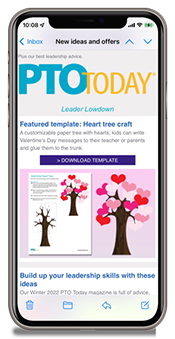Question: Advice on soliciting yearbook ads?
Our PTO is currently putting together our annual yearbook, and we are at a loss about how to ask for support booster ads. Do you have a form letter and/or samples of ads and order forms that you can share?
Asked by
Answers:
Advice from PTO Today
Elly writes:Does Elly have forms? Why, Elly has a form for just about everything, thanks to the PTO Today File Exchange. You’ll find several business solicitation forms there; just personalize the letter a bit to reflect your PTO’s name and the nature of the request. You’ll also find tips for communicating effectively with those owners in “Fundraising Help From Local Businesses” in the article archives.
When you send the letter, you’ll want to attach sample ads with prices and sizes. If you’re working with a yearbook company, the rep should make those available to you. If you’re assembling it on your own, perhaps a mom or dad with graphic art skills could help you design a layout that works with your yearbook scheme.
Elly should also point out that the IRS distinguishes between “qualified sponsorship payments” and “advertisements.” You and your leaders should probably know the difference between these two activities as you go about your PTO business. Elly will use your local pizza place, Tony’s Pizzeria, to explain.
According to the IRS, soliciting and receiving payments from Tony to print his pizzeria’s name in your yearbook (or even in your auction program, for example) is OK. You’re also permitted to print Tony’s logo and slogan accordingly in the space that he’s paid for.
However, you’ll want to stay away from publishing anything for Tony that could be considered superlative, such as “Tony’s—the best pizza in town!” You should also avoid printing any ads that endorse his pizzeria over another, such as “Tony’s—the official pizza of the XYZ PTO.” Doing so amounts to advertising; as such, payments you receive in return could be considered taxable unrelated business income by the IRS. Soliciting and receiving qualified sponsorship payments, on the other hand, is not subject to tax. (You may have to explain this stipulation to your donors so they can tweak their ads if necessary before they reserve their sponsorship space.)
When it comes time to mail out the letters, be sure to include all business owners. (In other words, don’t limit the premium pages to, say, just your friend’s hair-cutting business or your vice president who sells Tupperware.) You may also want to think about printing “shout-outs” where parents pay $5 or $10 to write a congratulatory message to their student. This can be a great way to use a few extra blank pages and make a little money, too. And if you still need filler, you can always include pictures of your group’s volunteers in action!
Answer this question:

